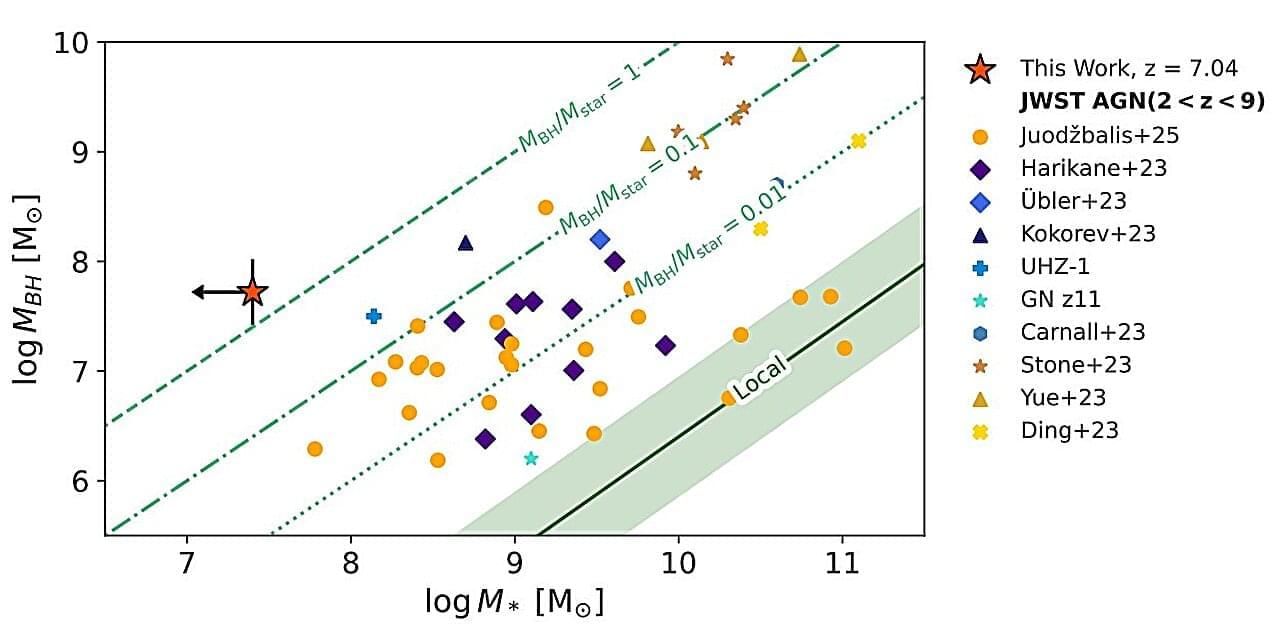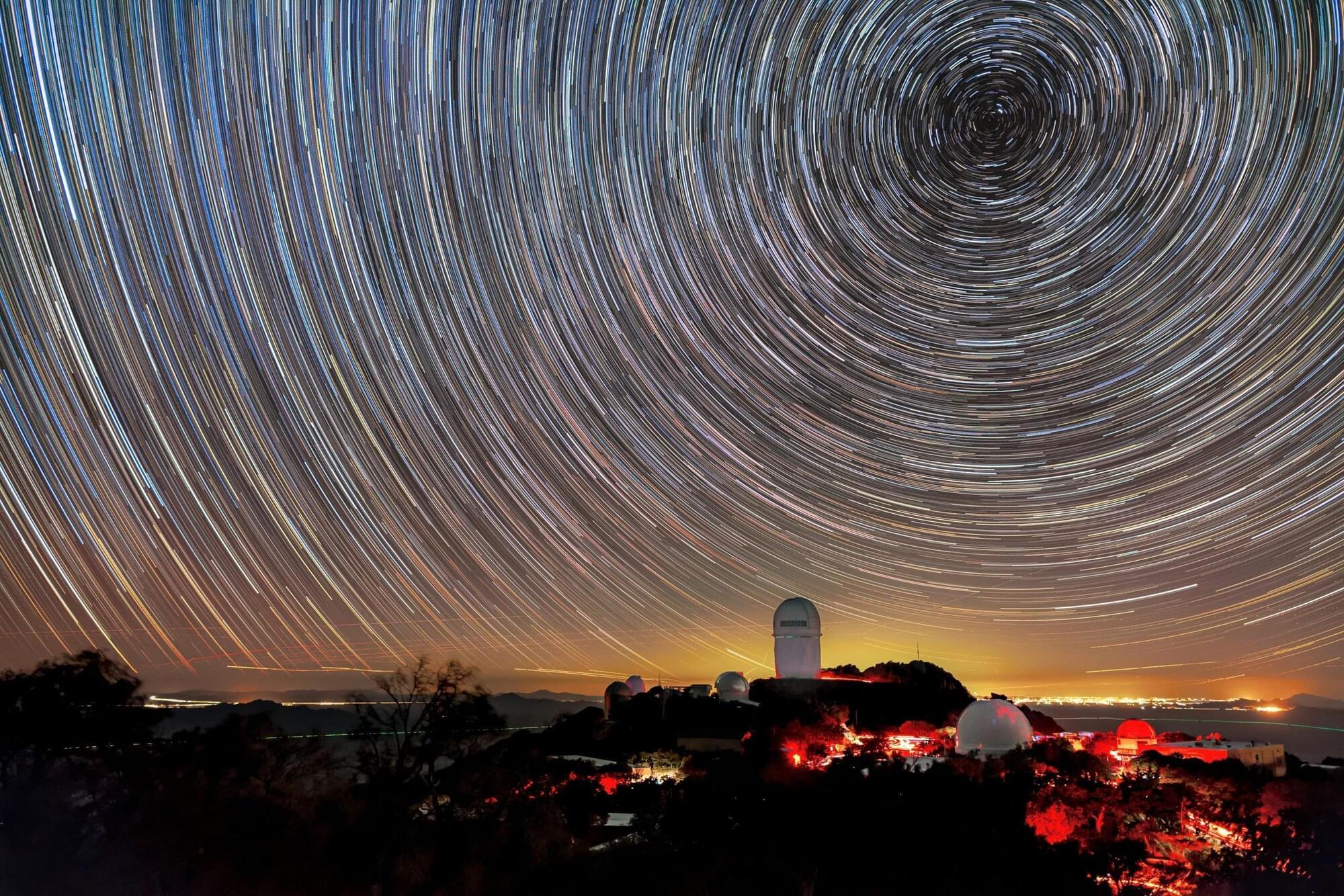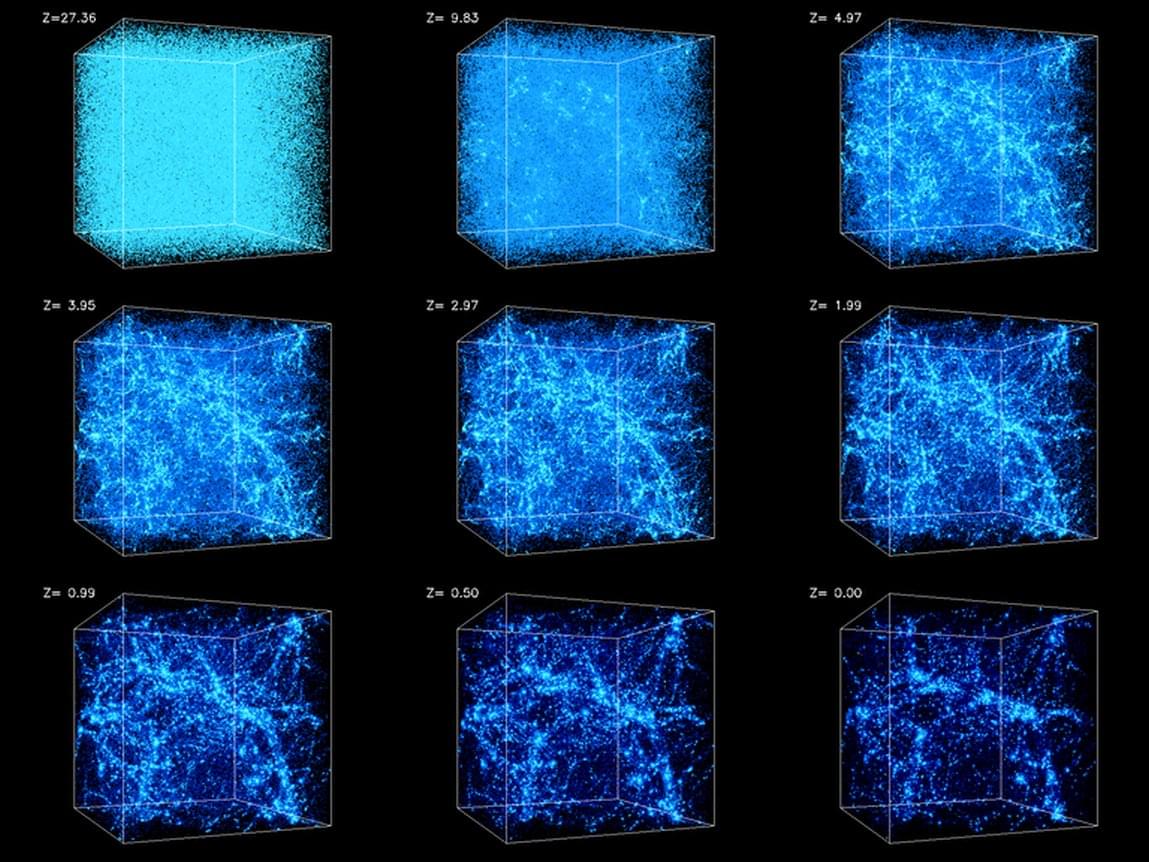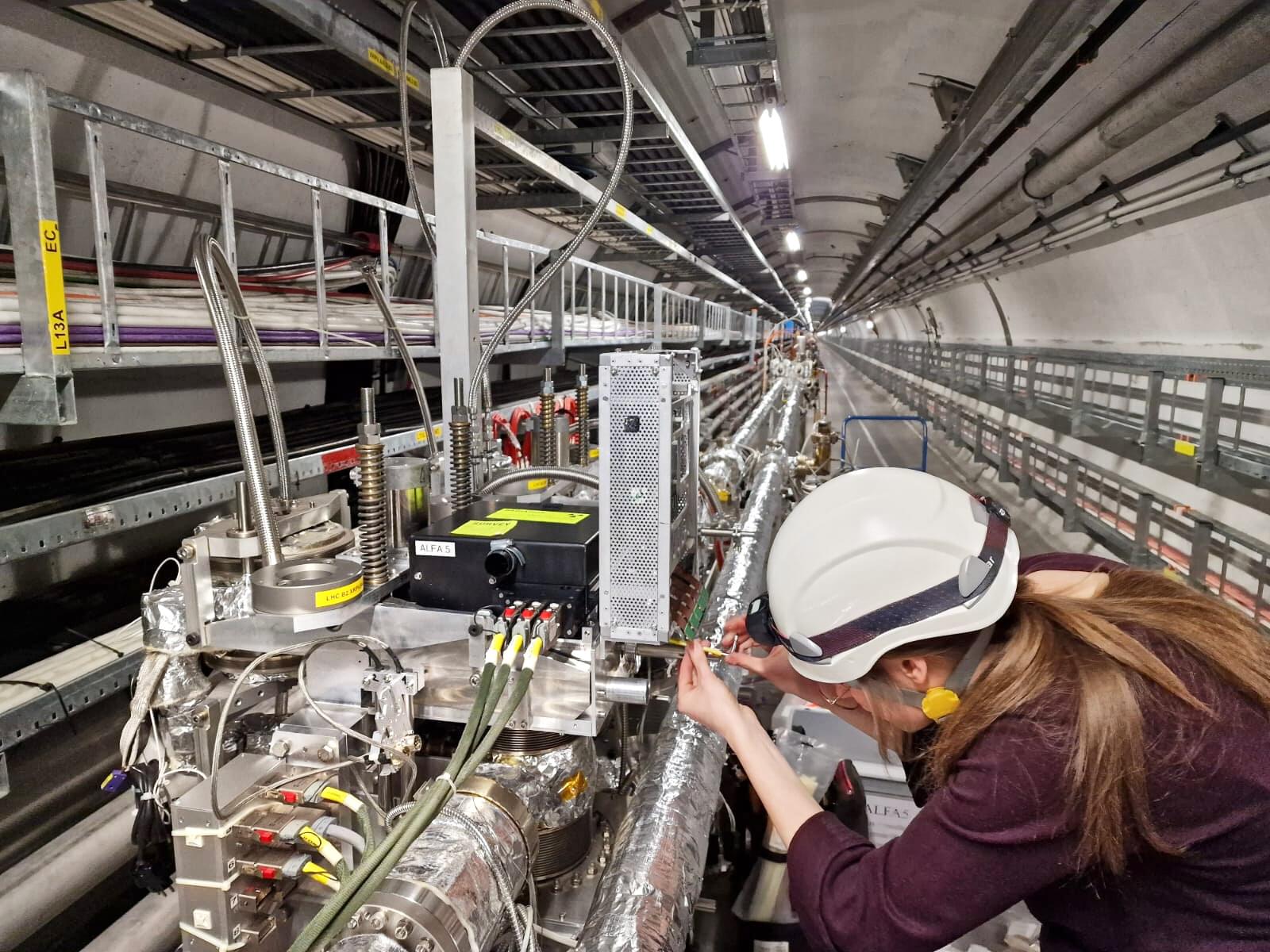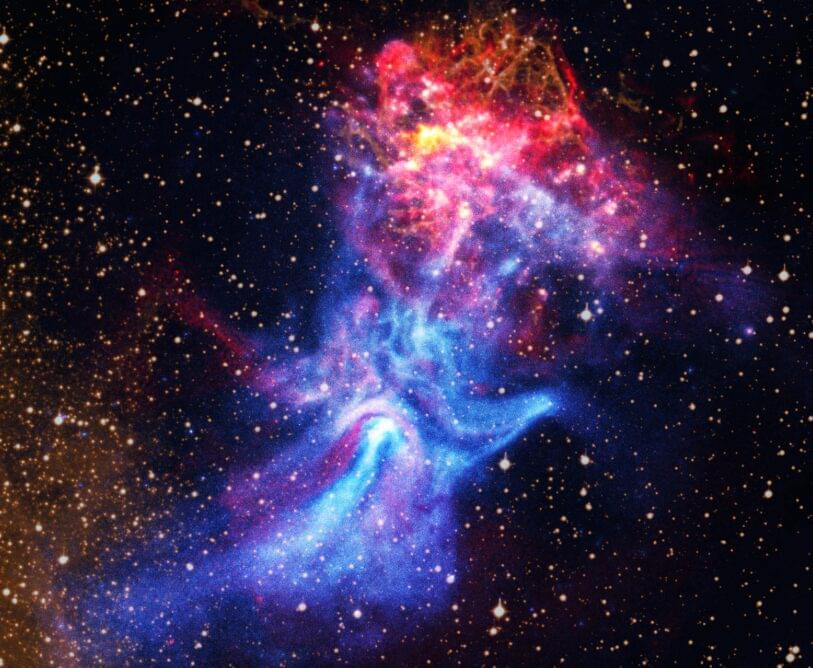Scientists have discovered a giant black hole that they believe may have been formed in the first few microseconds after the Big Bang. The black hole is so huge that it may change our understanding of how these cosmic giants form. If the findings are confirmed, this will be the first evidence of primordial black holes, which were predicted to exist by Stephen Hawking in the 1970s.
The discovery comes from observations made by the James Webb Space Telescope (JWST), the largest telescope in space. JWST spotted a group of small, red, faint objects called “Little Red Dots” (LRDs), which are thought to be baby galaxies that are home to young, growing black holes.
A paper by an international team of scientists led by astrophysicist Ignas Juodžbalis of the University of Cambridge in the UK has directly measured the mass of one of the LRDs. Their results indicate that a mysterious glow from the red dot named QSO1 is a black hole with a mass equivalent to 50 million suns. This large astronomical object is in the early stages of a process called accretion, where its gravity is pulling in surrounding gas and dust. The study is published on the arXiv preprint server.
